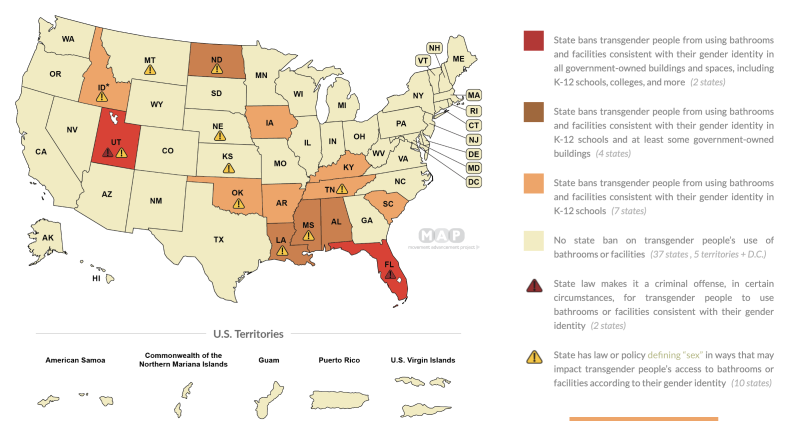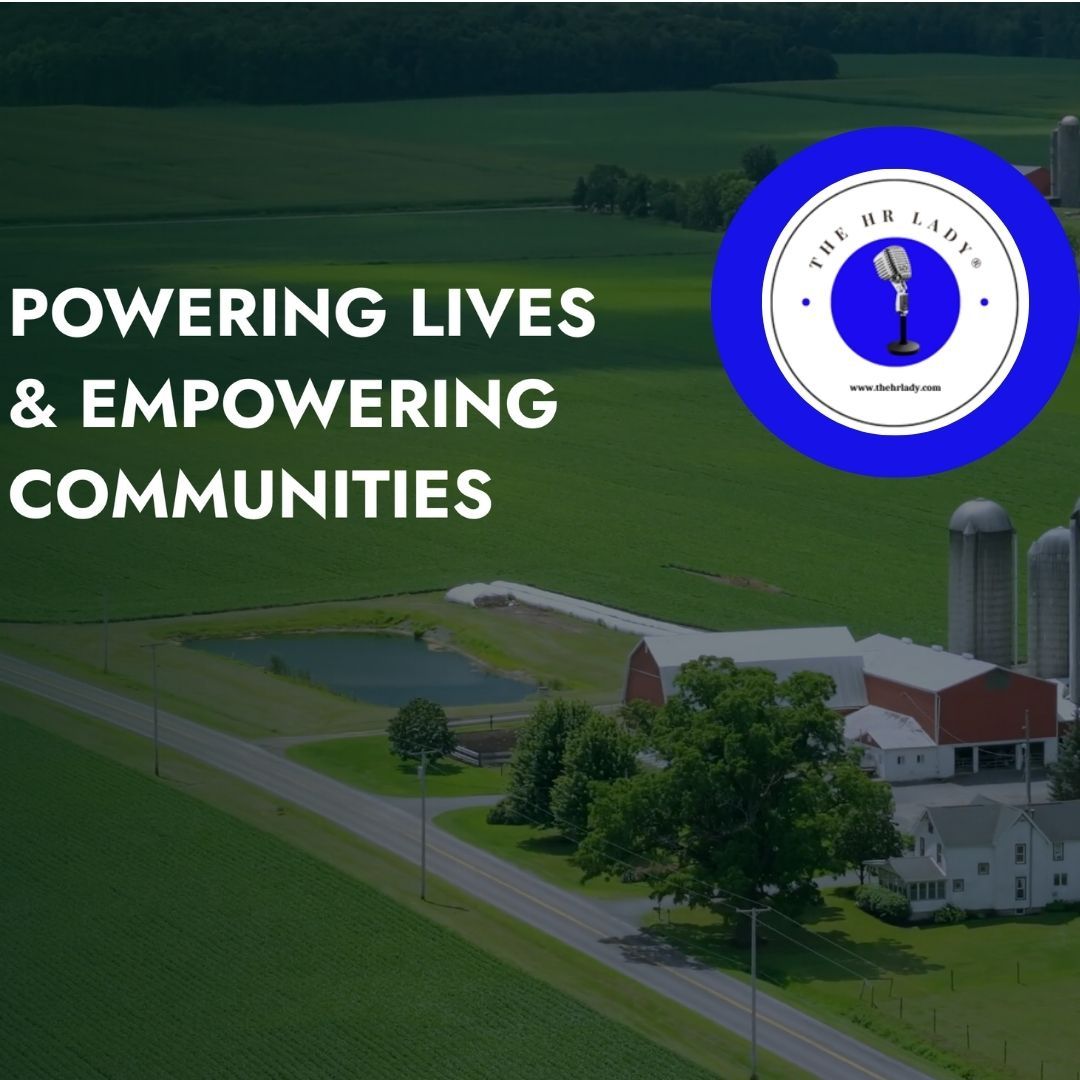As of October 2024, several U.S. states have enacted laws affecting bathroom access based on individuals’ sex assigned at birth, impacting both public and private employers.
Want change? Vote. Protest. Inform others. Be a good human! In the meantime, here’s an overview:
States with Laws Restricting Bathroom Access Based on Sex Assigned at Birth
1. Alabama: Enacted laws requiring individuals to use bathrooms corresponding to their sex assigned at birth in public schools and government buildings.
2. Arkansas: Implemented similar restrictions for public school bathrooms and other government-owned facilities.
3. Florida: Passed legislation mandating that individuals use bathrooms aligning with their sex assigned at birth in public schools and certain public spaces.
4. Idaho: Established laws restricting transgender individuals’ access to bathrooms consistent with their gender identity in public schools and other government facilities.
5. Iowa: Enacted bathroom access laws based on sex assigned at birth, affecting public schools and government buildings.
6. Kansas: Implemented restrictions requiring individuals to use bathrooms corresponding to their sex assigned at birth in public facilities.
7. Kentucky: Passed laws affecting bathroom access in public schools and government buildings, based on sex assigned at birth.
8. Mississippi: Enacted legislation restricting transgender individuals from using bathrooms and locker rooms that align with their gender identity.
9. North Dakota: Established laws requiring individuals to use bathrooms matching their sex assigned at birth in public schools and certain public facilities.
10. Oklahoma: Implemented bathroom access restrictions based on sex assigned at birth, affecting public schools and other government-owned spaces.
11. Tennessee: Enacted laws requiring individuals to use bathrooms corresponding to their sex assigned at birth in public schools and government buildings.
12. Utah: Passed legislation restricting bathroom access based on sex assigned at birth in public schools and government facilities.
Impact on Private Employers
While these laws primarily target public schools and government-owned facilities, they can influence private employers, especially those with government contracts or those located in states with such regulations.However, under Title VII of the Civil Rights Act of 1964, private employers with 15 or more employees are prohibited from discriminating based on sex, which includes gender identity.The Equal Employment Opportunity Commission (EEOC) has clarified that denying transgender employees access to restrooms consistent with their gender identity may constitute sex discrimination.
It’s essential for employers to stay informed about both federal guidelines and state-specific laws to ensure compliance and foster an inclusive workplace.
Check out this link: https://www.lgbtmap.org/equality-maps/nondiscrimination/bathroom_bans.





